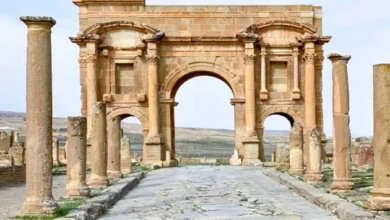Ethiopian Prime Minister Abiy Ahmed wins Nobel Peace Prize

Ethiopian Prime Minister Abiy Ahmed received the Nobel Peace Prize. He was awarded this prize for his efforts in favor of “peace and international cooperation”.
Abiy Ahmed played a key role in last year’s signing of the peace agreement that ended a nearly 20-year military stalemate with Eritrea after the 1998-2000 border war.
Mr Abiy said: “I am so flattered and delighted to hear the news, thank you very much. This is a prize given to Africa, given to Ethiopia, and I can imagine how the rest of the African leaders will take it positively to work on the peace-building process on our continent.”
Abiy Ahmed, 43, was also recently hailed for his role in facilitating a power-sharing agreement in neighboring Sudan after the overthrow of President Omar al-Bashir. He became Prime Minister of Ethiopia in April 2018 and embarked on a series of internal reforms that changed the country’s politics.
Abiy Ahmed has been named the winner of the 100th Nobel Peace Prize in Oslo. It has been awarded 100 times – to 107 people and 27 organizations. Ethiopian Prime Minister Abiy Ahmed has become the 12th African to receive the Nobel Peace Prize.
Previous African winners have been:
2018 – Dennis Mukwege – Democratic Republic of Congo
2015 – Quartet for the National Dialogue – Tunisia
2011 – Ellen Johnson Sirleaf and Leymah Gbowee – Liberia
2005 – Mohamed El Baradei – Egypt
2004 – Wangari Maathai – Kenya
2001 – Kofi Annan – Ghana
1993 – Nelson Mandela and FW de Klerk – South Africa
1984 – Desmond Tutu – South Africa
1978 – Anwar al-Sadat – Egypt
1960 – Albert Lutuli – South Africa
The Nobel Committee congratulated the Prime Minister of Ethiopia for not only lobbying for peace with Eritrea, but also for a series of reforms. Abiy Ahmed has granted amnesty to thousands of political prisoners, allowed opposition groups to operate after years of oppression and freed the muzzled media.
Mr Abiy’s efforts to help end the political crisis in Sudan also played a role in the decision to award him the Nobel Peace Prize. But some criticize this decision because, as the Nobel Committee pointed out, there are still many problems to be solved in Ethiopia.
Mr Abiy’s critics say he has done little to tackle the alarming increase in ethnic tensions that have forced millions to leave their homes. In total, 301 candidates were nominated for this prestigious award, including 223 people and 78 organizations. There had been a lot of speculation about who would win the prize. According to the rules of the Nobel Foundation, lists of short-listed candidates can not be published for 50 years.




